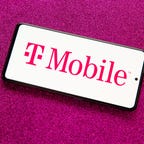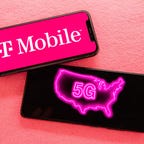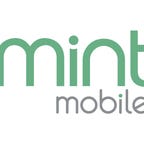Best Cellphone Plans of 2024: Our Top Picks for April
Looking for a reliable phone plan? Here are our top picks for the best ones out there.
Our Picks


With AT&T, T-Mobile and Verizon offering dozens of plans, not to mention the exponentially larger assortment from prepaid and smaller carriers like Mint Mobile, Visible and Google Fi Wireless, it's not easy choosing the best cellphone plan. Without doing the right research, you could end up paying a lot more than you should, and no one wants to lose out on saving money.
We're going to try to fix that. We've been covering the latest in wireless plans, from breaking down how to switch carriers, to picking the top unlimited and prepaid plans. We also explain which network the smaller carriers use, as well as T-Mobile's and Verizon's plan revamps and AT&T's plan rebranding and price increase.
After covering the wireless industry for over a decade, here's CNET's guide for sorting through the madness along with some of our picks for what we think are the best unlimited and prepaid plans available right now.
Factors to consider: Know your area
As we covered in our other wireless guides, to get the best deal you need to make sure you have the coverage that you need. This makes it hard to give a blanket recommendation of any one carrier. T-Mobile's service in New York may be excellent, but if you're in rural Iowa, Verizon is more reliable.
While your mileage may vary, the good news is that these networks are growing and improving all the time, particularly as the three major players race to blanket the US with 5G. It's quite possible that you left a network complaining about its sparse service a decade ago, but now it's beefed itself up because of that race to acquire customers.
If you know any friends or family in your area that already use the carrier you're considering, ask about their experience. You could also go to a carrier's store and see if they offer any free ways to try out the service before switching over, such as T-Mobile's Network Pass. Verizon offers a similar 30-day "Test Drive" program, while the Cricket prepaid service has its own trial program that lets you sample parent AT&T's network.
Best phone plans of 2024
Postpaid phone plans
T-Mobile reshuffled its plans last year and got rid of our previous pick in this spot, the Base Essentials plan that offered a single line for $45 a month. It replaced that option with an Essentials Savings plan, a "limited time" offer of $50 a month for a single line.
It has since been renamed the plan to Essentials Saver, and although the plan is largely the same, there are some notable tweaks.
The data remains unlimited, and you now get 50GB of high-speed data, instead of the 20GB that Base Essentials offers. T-Mobile hasn't said how long the Essentials Saver option will hang around, but we break down how it compares to the carrier's plans here.
As before, perks like free Netflix or the bundling of taxes and fees into the sticker price aren't included. You do get unlimited hotspots at "3G speeds" and unlimited talk, text and 2G data in Mexico and Canada.
At $50 for a single line, the Essentials Saver plan is now the same price for a single line as AT&T's Value Plus plan, and both could be solid options for those looking for a single line without frills.
Although the price of the AT&T and T-Mobile plans are now the same, we give T-Mobile the edge here mainly because it includes hotspot access. Even at "3G speeds," the option could be a useful feature in a pinch.
It's also worth mentioning that T-Mobile allows for multiple lines on this plan, with two lines running for $80 a month. (If you need three or more, you may want to look at one of T-Mobile's other plans, which could be cheaper thanks to various promotions the carrier regularly runs.)
You may need to click "see more plans" and then "explore Essentials Saver plan" on T-Mobile's site to get this option to appear, though lately, the carrier has been showing it alongside its other offerings.
Premium Wireless starting at $15 per month
Mint Mobile
Mint Mobile offers premium wireless plans starting at $15/month when you purchase a 3-month plan. All Mint plans come with unlimited talk & text, high-speed data, free 5G on the Nation's largest 5G network, free mobile hotspot, and free calling to Mexico & Canada. You can use your own phone with any Mint Mobile plan and bring your phone number, along with all your existing contacts. Switching to Mint Mobile is easy with helpful videos and articles that walk customers through the process. And for those with eSIM compatible devices, you can make the switch within minutes of purchasing a Mint plan.
Best value phone plan for multiple lines
T-Mobile Essentials Saver for 2 lines, T-Mobile Essentials for 3+ lines
Because of T-Mobile's restructuring of its cheapest plans, this has gotten a bit more complicated. As we mentioned, both T-Mobile Essentials and Essentials Saver include unlimited talk, text and data for all the carrier's base unlimited plans, including 5G access.
In short, if you need two lines, Essentials Saver is your best pick, while those looking for three or more lines may want to go with regular Essentials.
Two lines of Essentials Saver run $80 a month, while a similar offering from Verizon costs $110 per month, and a similar deal from AT&T runs $120 a month. Three lines will also run $90 at T-Mobile for its regular Essentials thanks to a promotion, compared with $120 at Verizon (for Unlimited Welcome) and $135 at AT&T (for Unlimited Starter). The four-line option is now back to $100 at T-Mobile thanks to a new promotion, compared with $120 at Verizon and $140 at AT&T.
For those comparing prices on multiple carriers' websites, it's worth keeping in mind that Verizon's pricing by default factors in a switching promotional discount of $180 over three years for Unlimited Welcome or $540 if you're getting Unlimited Plus. In both cases, it's also assuming you aren't getting a new phone when you switch.
To get the real numbers of Verizon's plans make sure to add $5 per line to its Welcome prices and $15 per line for Plus. Our pricing above removes the BYOD device credit. Our pricing here also assumes no perks from Verizon.
As for T-Mobile, its prices also come with a couple of caveats: Unlike the carrier's Go5G or Magenta plans, taxes and fees aren't included in any of these Essentials prices, making the final total a little higher. All the deals also require that you set up AutoPay and paperless billing.
You may need to click "see more plans" and then "explore Essentials Saver plan" on T-Mobile's site to get this option to appear, though lately it has been listed alongside its regular plans.
Best phone plan for perks
Verizon Unlimited Welcome
This is a bit more complicated. Verizon used to be our pick with its Play More plan that bundled in the Disney Bundle (ad-free Disney Plus, ESPN Plus and Hulu with ads) and services like Google Play Pass or Apple Arcade into the plan's sticker price.
Now the carrier has updated its wireless plans to remove perks like the Disney Bundle or Apple Arcade and Google Play Pass from being automatically included with its service. Even with its new plans, it's still our pick for best perks, but this will require a bit more explanation.
Instead of automatically putting services in, it now offers a variety of perks at $10 per month per perk, allowing users to pick and choose what they want. It also now allows its lower-cost plan, known as Unlimited Welcome, to participate.
Unlimited Welcome runs $65 per month for one line or $120 per month for four lines. You get unlimited talk, text and data but you don't get access to Verizon's fastest 5G networks (what it calls "5G Ultra Wideband") or hotspot data. For that, you will need to step up to its pricier Unlimited Plus plan ($80 for one line, $180 for four lines).
Both the Welcome and Plus plans include the ability to add perks at that $10 per month rate. This includes the Disney Bundle (normally $15 per month), Apple One individual (normally around $17 per month), Apple Music Family (which can be shared with five people and normally runs $17 per month) and Walmart Plus (normally $13 per month but also includes Paramount Plus Essential).
There are also other perks including an additional 100GB of hotspot data (normally $45 per month), 2TB of Verizon's cloud storage (normally $15 per month), three days of international data (what the carrier calls TravelPass, normally $10 per day).
All perks can be turned on or off at will, and you could forgo them entirely. You can even go with multiple perks on a single line if you want.
Whether this makes sense for your situation may require some time with a spreadsheet going through what services work for you and what you're willing to pay for them. The savings could add up if you're paying for some of these services directly, but it also could be more expensive than your existing plan.
It is also worth mentioning that Verizon allows you to "mix and match" lines, so if not everyone needs the faster 5G connectivity they could be on Unlimited Welcome while the one who does can go on Unlimited Plus.
AT&T allows something similar with its unlimited plans, but at the moment, it no longer offers any streaming perks. To get T-Mobile's perks everyone has to be on the same plan.
If you wanted a cheaper way to save on one or two services like the Disney Bundle, you could have four lines for $120 per month, add the Disney perk for $10 and be paying $130 per month for the whole package.
Oh, and you can also combine these plans with Verizon's other discounts for teachers, nurses, military and first responders to save a bit more.
Prepaid phone plans
Best unlimited phone plan for a single line
US Mobile Unlimited Starter for $23 per month (annually)
US Mobile, which runs on Verizon's network for its "Warp 5G" service and T-Mobile's for its "GSM" offering, has updated its plans again. Now its cheapest Unlimited Starter option starts at $23 per line, per month when purchased annually. That's slightly cheaper than our previous pick in this spot, Boost Mobile's $25 per month unlimited plan.
Taxes and fees are included in the sticker price, and you will now get 35GB of high-speed data and 10GB of hotspot data. To add more high-speed data, international roaming or streaming perks, you'll need to step up to the carrier's pricier Unlimited Premium plans.
If you don't want to prepay for a year, you can get Unlimited Starter for $29 per month.
Best phone plan for a family of four: $80 per month
Google Fi Wireless Simply Unlimited
Google's phone service got a pricing revamp that makes it a much more appealing alternative to major providers. For a family of four, you can now get its Simply Unlimited plan for $80 per month ($20 per month, per line), which includes not only unlimited talk, text and 35GB of high-speed data but also 5GB of mobile hotspot use. There also is free roaming in Canada and Mexico, although taxes and fees aren't included in the sticker price.
Google Fi Wireless runs largely on T-Mobile's network and its service includes 5G access, now including iPhones, which were previously excluded from the fastest data connection.
Best phone plan for 15GB of data or less
Mint Mobile 15GB Plan
When it comes to plans with under 15GB of data, Mint has the best value (once again) if T-Mobile's network is solid in your area. Whereas Metro and Cricket charge $40 per month for one line and Boost has a $35 plan for 10GB of data, Mint beats them all on price and now data.
Last year Mint upped its 10GB plan to 15GB of 4G LTE/5G monthly data while keeping the same $20 per month price (when purchased in 12-month increments). After that, you can buy three more months at $35 per month ($105 total), six months at $25 per month ($150 total) or another year at $20 per month ($240 total).
Best budget phone plan without data
TextNow
If you're looking for service for a backup phone that's rarely used, TextNow has a free plan. Running on T-Mobile's network, the service offers free unlimited talk and unlimited texting, although ads are placed in its app that you use to call and text people. There isn't any data included with this option, and removing the ads without adding data would run you $10 a month. If you want to watch YouTube, FaceTime or surf the web, you'll need to connect to Wi-Fi.
Text messages are also done through the company's TextNow app, not through iMessage or WhatsApp, which makes sense as those services require data.
If you need data, things get expensive quickly. An unlimited data hour pass runs $1 per hour, a day pass is $5 while a month is $40. If you need data, you're better off going with a different provider than TextNow.
How we test
Picking a wireless plan and carrier is an individualized process. What works for you and your family's needs may be vastly different from your friends or neighbors. Even geographically, some areas have better AT&T coverage while others work best on Verizon or T-Mobile (and vice versa). The picks we make are based on over a decade of covering and evaluating wireless carriers, their offerings and their performance.
Since choosing a provider is unique, we focus on larger plans and the value they provide; as well as calling out ways you can test the different networks in your area for yourself so you can make the best pick.




